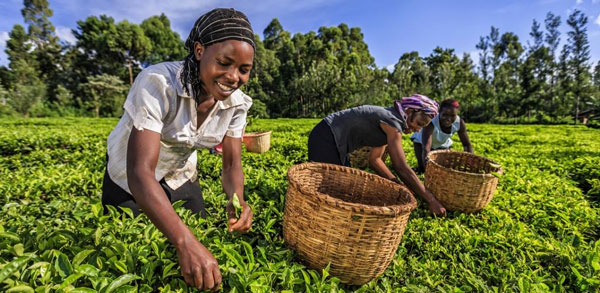
Kampala, Uganda | THE INDEPENDENT & AGENCIES | Kenyan tea industry export earnings surged by 31% to a historic high in 2023, buoyed by an increase in export volumes and a depreciating local currency. The Tea Board of Kenya said that the sector’s earnings reached US$1.22 billion, up from US$940 million in the preceding year, marking the highest revenue ever recorded.
Willy Mutai, the Chief Executive Officer of the Tea Board of Kenya, said the depreciation of the local currency, which traded as low as 150 against the US dollar, according to the Central Bank of Kenya, played a crucial role in boosting export earnings.
Total tea export volume witnessed a remarkable increase, rising to 522.92 million kg from 450.33 million kg in 2022.
Pakistan retained its status as the top destination for Kenyan tea, importing 209.59 million kg, marking a 15% increase from the previous year.
Deputy President Rigathi Gachagua reaffirmed the government’s commitment to implementing reforms aimed at enhancing returns for tea growers, addressing challenges such as rising production costs, declining quality, limited value addition, and depressed prices.
The government’s strategic plan aims to escalate the level of value-added tea exports from 5% in 2023 to 50% by 2027, potentially elevating the value of tea exports to over US$1.85 billion and improving earnings for smallholder tea farmers. Efforts to restore and expand key markets, including Russia, China, Iran, Saudi Arabia, and Turkey, are underway to correct the trade imbalance.
Conversely, Uganda’s tea sector faced challenges, with export earnings dropping from US$88.36 million in 2022 to US$83.45 million in 2023, despite an increase in export volumes from 76.142 million kgs to 78.186 million kgs.
The decline in tea prices has led some farmers to consider alternative economic activities, signalling a need for strategic interventions to stabilise the market and ensure sustainable growth in the industry.
 The Independent Uganda: You get the Truth we Pay the Price
The Independent Uganda: You get the Truth we Pay the Price


